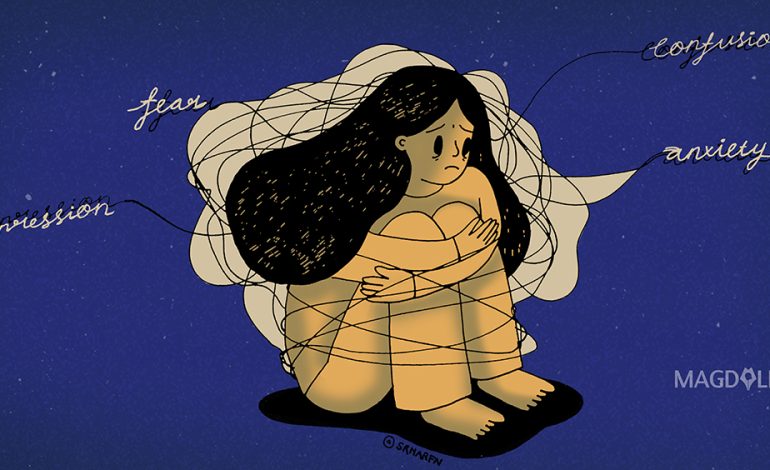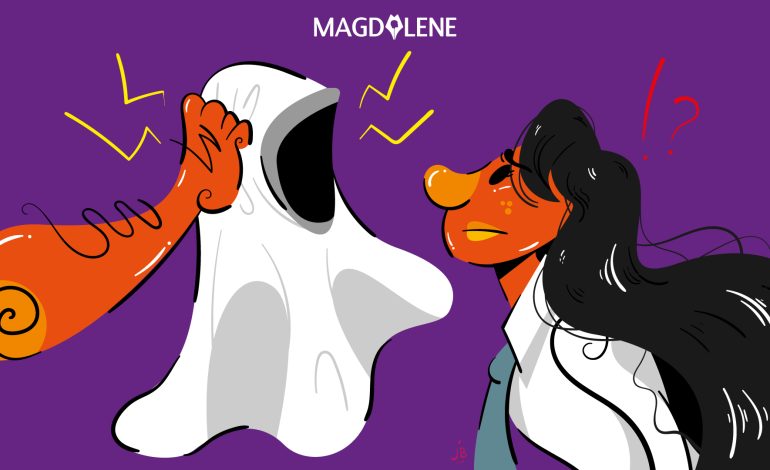When Your Brain Betrays You: My Battle with Chronic Depression in College

For as long as I remember, we are always told to “follow your dreams” or “dream big.” We are told, “if you can think it, you can do it!” But what if your dream has left you behind? What if your brain tells you that you don’t have dreams, or even that you don’t deserve to have dreams? What if your own brain, one of the most important organs in your body, betrays you? This is my story.
I have always been passionate with my studies, but looking at some periods in my life, you would never believe this. Though I rarely ask questions or chime in discussions in class because of my shyness, in general, I am always excited to learn, attend classes and listen to my clever lecturers. I read my class material in advance at home and do research on stuff that aren’t even assigned. The first two years at university, I was a marvel, attaining high GPA. But it started to go downhill in my third year.
This wasn’t new. I have suffered from depression in my younger years, the worse episode being in 2012 while I was in high school. But I bounced back and found a new happiness in college, when I thought I was done with depression. Little did I know that chronic depression doesn’t really go away for good.
When my depression came back in my third year of college, I started to have trouble even doing simple tasks like getting up and showering. Attending classes became impossible. All I wanted to do was stop existing. I had a weird, almost irrational fear of being awake at normal hours, when I would be up and existing as other people. I would wake up sleep at 6AM and wake up at 5PM. Sleeping was the only comfort I had, as it was the closest I could get to dying, and I slept 18 to 20 hours a day.
I failed all my classes and recorded 0 GPAs for 3 semesters in a row. It was as if I was dead for 1.5 years. Some might see me posing with cute clothes on Instagram, praising me for losing 7 kgs, but there was a reason I lost those weights. I threw up all solid food, barely got out of the house, and drank excessively during those months. I also couldn’t stop hating myself for simply failing as a human being. While all my friends were busy planning their lives after university, writing the last few chapters of their thesis, there I was, lying on my bed contemplating suicide methods.
I signed up for a course titled Comparative Literature, taught by a lecturer I admire. The class was an elective course so there would be fewer students. I became excited again, and it was a time when I thought I was getting better. But after two or three fun meetings, during which I even participated in discussions about Jane Eyre, I stopped coming to class. I don’t even remember why. A friend asked why I stopped coming, noting that I was doing so great in class, and I didn’t know what to say. I couldn’t tell her that my mind was occupied with death.
Also read: Help is on the Way: When Depression or Mania Rears Its Ugly Head
The next semester, I was on medication. Finally, I was getting better, passing some classes that didn’t require 75 percent attendance. It seemed my brain could handle 6 weeks of materials without attending the lectures. I’m beginning to think it was the social anxiety that stopped me from going outside. So, I signed up for Comparative Literature for the second time, although I didn’t have to.
The class was at 4PM, which was actually a perfect time for me, as I normally woke up at 1PM. The syllabus was similar to the previous semester, with changes on the Indonesian literature. But my excitement proved too soon, however. I would dress up, even put on makeup, walked up the door, but ended up shivering at the thought of meeting people.
In the end, I read all the assigned books and papers, but didn’t attend a single class. I sent an apology email to my professor, one of the many apology emails I sent that year. Some replied to me kindly. My lecturers are truly the best. They allowed, even encouraged me to go at my own pace, constantly reminding me that our paths in life aren’t always the same, that I was capable and that I should keep on.
It wasn’t until the next semester that I began to make headways – after I found out that I had been incorrectly diagnosed! I was diagnosed with bipolar disorder and prescribed the right medicine. In 1.5 months, I gained weight and the fog inside my brain cleared up. There was less weight on my shoulders, and my view and perspective in life shifted. I’d never felt like this before. In a few months I was able to finish my thesis and complete all the courses that I failed before. After having abandoned it for two years, I finished my thesis in less than four months. In fact, this year, I am starting on a master’s degree program.
I owe my lecturers, academic advisor, and thesis advisor a great deal for being incredibly understanding and supportive. This is a privilege in a society that still stigmatizes mental illness. Despite my shortcomings and struggle, I am well aware that I am one of the luckiest people. There are people who don’t even realize they have mental health problems, so they live miserably, being perceived as stupid, lazy, unaccomplished – a failure. Most people don’t know that your brain can betray you, distorting your own sense of reality.
My battle with mental illness does not end there, of course. Living with a chronic mental illness is exhausting, but it is by no means a death sentence – though at times it feels like it. Despite my screaming brain, though, I will continue to live and make myself and everyone around me happy. I have my books, coffee, and my cats, what more do I need?






















